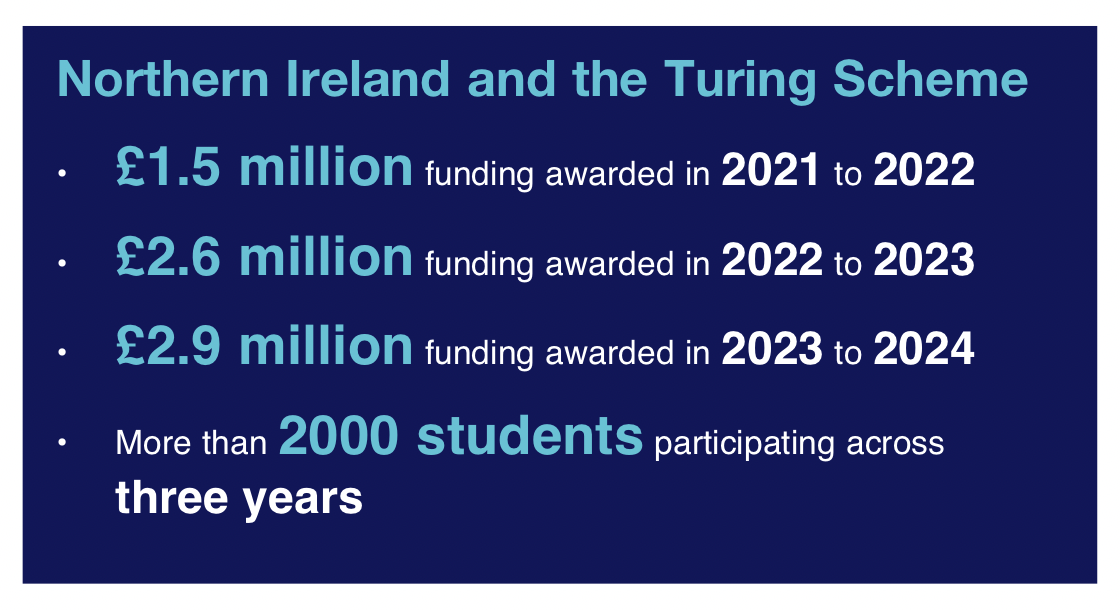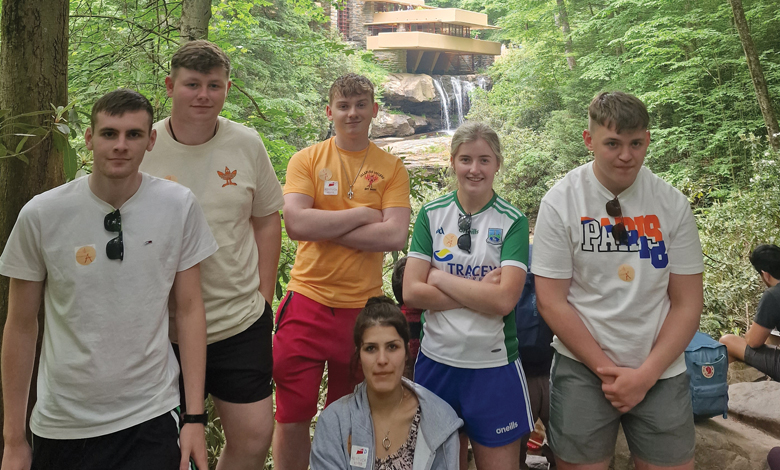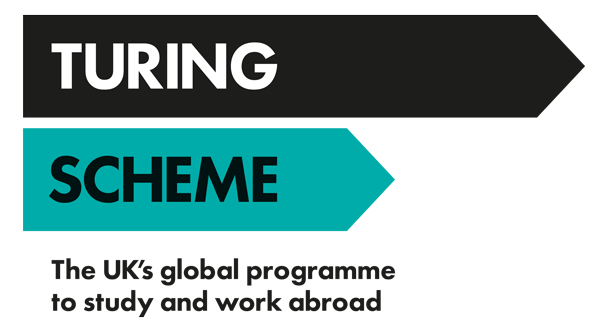Offering once-in-a-lifetime opportunities for personal and professional development for Northern Ireland students

Students from Northern Ireland schools, colleges and universities are set to benefit from over £10 million of funding to explore international study and skills development opportunities for a third consecutive year.
This is part of the Turing Scheme, the UK Government’s programme to provide UK schools, colleges, universities and training providers with funding for international opportunities in education and training.
About the Turing Scheme
The Turing Scheme unlocks the opportunity for UK schools, colleges, universities, and training providers to offer experiences across the world for their students, learners, and pupils, including the development of new skills, gaining vital international experience, and boosting their employability. They can also develop a wide range of soft skills, language skills, and gain a better understanding of other cultures.
Applications opened for the 2023 to 2024 scheme in February 2023, with an eight-week window to submit via an online application process. This year saw a significant increase in the number of applications from all sectors and an increase particularly from Northern Ireland organisations – where for the first-time schools have been successful in the application process, along with every further education college and both the University of Ulster and Queen’s University Belfast.
Canada, Japan and the United States are among more than 160 international destinations where Northern Ireland students will be funded to take up work and study placements, alongside popular European destinations like Spain and France.

Capita: Supporting exciting opportunities all over the world
Locally based Capita was appointed in December 2021 to promote and administer the scheme. This involved designing and building a bespoke digital platform that could manage the end-to-end application and management process. It needed to be scalable and flexible to respond to demand throughout the application window.
Drawing on in-house expertise gained from many years of work in the education sector and with government departments, Capita quickly mobilised project management, operations, digital, customer service and communications teams to deliver the programme for the 2021 to 2022 academic year and following years of the scheme.
An advisory board of key stakeholders was also established, and a partnership agreement was entered into with t
he Association of Commonwealth Universities (ACU) to deliver an assessment of all applications to the scheme, drawing on the ACU’s track record in assessment, delivery and evaluation of global mobility schemes.

|
Aspiring chefs from South Eastern Regional College, in Northern Ireland, get hands-on experience in Nashville and Knoxville. Six catering students from South Eastern Regional College (SERC) in Northern Ireland cooked up a storm after getting the chance to hone their skills with a trip to Tennessee following the college being successful in their application for Turing Scheme funding in 2022. The party travelled to Nashville on a two-week work experience and cultural visit, designed to developed their professional cookery skills. The group spent their first week in the United States working at Dream Hotels in Nashville, before heading to Knoxville to work in the local community alongside students and staff at the University of Tennessee. The trip was the first experience outside of Europe for all the participating students and enabled the students to gain hands-on cooking experience which was limited during the pandemic. Lecturer Brian Magill, one of the SERC team who accompanied the students, explained: “This was a fantastic opportunity for our students to immerse themselves in professional cookery in another country. Besides learning about Appalachian cuisine through essential hands-on experience in local restaurants and resorts, the students had the chance to show off some of their homegrown repertoire during festivities organised for St Patrick’s Day celebrations and to enjoy a host of US cultural activities.” |
An email-based service centre offers support and guidance to applicants and beneficiaries, with funded organisations being allocated a dedicated grant manager. There is also a range of online guidance materials, FAQs, demo videos and case studies published to support the scheme’s applicants.
Driving social mobility
This year the application process attracted more than 600 applications with over 470 being successfully awarded funding from a pot of £105 million, following an independent assessment process, managed by the ACU. This has been the highest number of applications in the lifetime of the scheme. More than 40,000 students, learners and pupils from across the UK are expected to get the transformational opportunity to study or work abroad from September 2023.
One of the key government objectives of the scheme is widening participation, and this has resulted in 60 per cent of overall participants across the UK and being from a disadvantaged background. In Northern Ireland more than half of the participants expected to benefit are from a disadvantaged background, offering students from Northern Ireland with an opportunity they may otherwise not get to experience.
| South West College (SWC): Supporting students to develop personally, professionally and academically
The Enniskillen-based college with 22,000 full and part-time learners has a strong focus on sustainability, both in the way it is managed, and the courses offered. Turing Scheme funding supported the college to participate in the Global Learning Opportunities Boosts Employability (GLOBE) project which enabled 16 Level 3 students on exchanges to undertake the globally recognised Passivhaus Tradesperson course. Passivhaus is a voluntary standard for energy efficiency in building which originated in Germany 30 years ago and is now widely adopted around the world. Eight students from SWC’s School of Built Environment undertook a three-week placement in Pittsburgh at Pennsylvania State University (PSU) which delivers a ‘Green Building’ programme and is a United Nations International Centre of Excellence for high-performance buildings. SWC students who visited PSU benefitted from access to the Global Building Network, specialising in high-performance building research and education, attended on site visits to the Frick Environmental Centre, Pittsburgh’s world-class centre for environmental education. “The college’s core vision is to develop people and achieve potential. The Turing Scheme is a vehicle for fulfilling this vision by growing international mobility opportunities. This has supported our young people to develop personally, professionally and academically, and encouraged them to achieve their educational and professional potential,” explained Barry McCarron, Head of Business Development at SWC. A further eight students travelled to Toronto, Canada, to participate in Humber College’s 2022 Global Passivhaus Construction Programme. They also studied the Passivhaus Tradesperson course while advancing their knowledge of green building initiatives in the country. The course centered around an in-depth study of Building NX, a retrofit of an existing building, one of Canada’s most sustainable buildings. Both partner universities are renowned for their innovative approaches to the green economy and opened international synergies with SWC students in the field of renewable energy and sustainable construction. One participating student from SWC said: “This programme has been incredible for my self-confidence which has been noticed by my employer. As someone coming on to the high-performance building course with no background in construction, this course has shown me that my professional skills are transferable while also giving me a wider perspective of engineering within construction. Following this experience, I am considering a period of international work as it has shown me the opportunities available.” |
For more information on the Turing Scheme visit:
W:www.turing-scheme.org.uk









